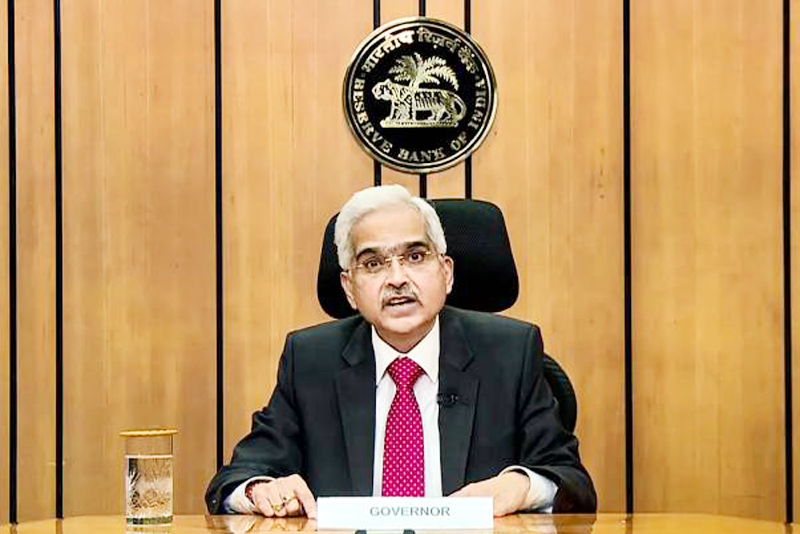MUMBAI, May 5: RBI on Wednesday allowed certain individual and small borrowers more time to repay debt and allowed banks to give priority loans to vaccine makers, hospitals and COVID-related health infrastructure as it announced support measures to cushion the pandemic’s blow on the economy.
The moratorium of up to two years will be available to individuals and small and medium enterprises that did not restructure their loans in 2020 and were classified as standard accounts till March 2021, RBI Governor Shaktikanta Das in an unscheduled address.
This facility will be available to borrowers with a total exposure of Rs 25 crore.
RBI will give Rs 50,000 crore of liquidity support to banks for providing fresh lending “to a wide range of entities including vaccine manufacturers; importers/suppliers of vaccines and priority medical devices; hospitals/dispensaries; pathology labs; manufactures and suppliers of oxygen and ventilators; importers of vaccines and COVID related drugs; logistics firms and also patients for treatment,” he said.
These loans of up to 3 years tenor will be obtainable at repo rate and will be available till March 31, 2022.
He also announced a calendar for bond-buying.
Just as the economy appeared to be inching back to normalcy, India was hit by a second wave of infections in early April, prompting states and cities to restrict public movements and impose lockdowns, which have hit some businesses hard.
India added 3,82,315 virus cases over the last 24 hours to reach a total of 2.06 crore, while death rose by a record 3,780 to 226,188, health ministry data showed.
RBI has been meeting with bankers and shadow lenders (NBFCs) in recent weeks to discuss the economic situation, possible stress to balance sheets and credit flow in the system.
Bankers had reportedly asked the RBI for a three-month moratorium, particularly for retail and small borrowers, as the world’s fastest rising pandemic curve began hurting businesses and jobs, with potential to inflate bad loans (defaults).
“The devastating speed with which the virus affects different regions of the country has to be matched by swift-footed and wide-ranging actions that are calibrated, sequenced and well-timed so as reach out to various sections of society and business, right down to the smallest and the most vulnerable,” Das said.
RBI will buy Rs 35,000 crore of bonds under ‘Government Securities Acquisition Programme’ (G-SAP) — India’s version of quantitative easing — on May 20. It has also allowed banks to dip into their floating provisions to set aside money for bad loans.
Das said the central bank sees outlook ‘highly uncertain’ and clouded with downside risks, but doesn’t see a major change to inflation forecast.
“As the financial year 2020-21 (April 2020 to March 2021) – the year of the pandemic – was drawing to a close, the Indian economy was advantageously poised, relative to peers. India was at the foothills of a strong recovery, having regained positive growth, but more importantly, having flattened the infection curve. In a few weeks since then, the situation has altered drastically,” he said.
While a battle is mounted to deal with the unprecedented crisis, shoring up livelihoods and restoring normalcy in access to workplaces, education and incomes has become an imperative, he said.
“As in the recent past, the RBI will continue to monitor the emerging situation and deploy all resources and instruments at its command in the service of the nation, especially for our citizens, business entities and institutions beleaguered by the second wave.” (PTI)
Trending Now
E-Paper


